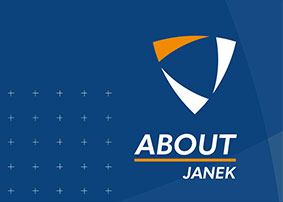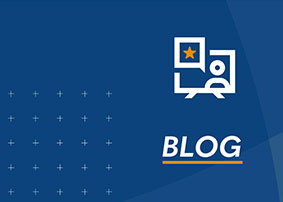Why We Wrote Our Finding, Onboarding, and Retaining Top Sales Talent White Paper

For most businesses, the COVID-19 pandemic was a gut punch we never saw coming. Economic downturns are one thing. But COVID was something more. Beyond supply-chain disruptions, shortages, and closures, the pandemic struck the very heart of business. It permanently altered the fundamental relationship between a company and its people.
Among sales organizations, this change has been especially pronounced. With the rise of virtual selling and engagement, the old model of hiring, onboarding, and retaining talent is not enough. Sales teams are more dispersed. The skill sets required to be effective have altered. In addition, modifications to family schedules have further reshaped the employment dynamic.
Recently, Janek Performance Group partnered with Selling Power in an extensive survey of B2B sales professionals. These range from reps and managers to leaders across various industries and company sizes. Our intent was to gauge how reps and managers view their organization’s programs for hiring, onboarding, and retaining talent in the new sales environment. The results are organized into five sections:
- Finding Talent
- Onboarding Talent
- Retaining Talent
- Takeaways
- Profile of the Survey Sample
Here, we’ll discuss the changes to how sales organizations hire, onboard, and retain talent and share key takeaways from the survey.
Finding Talent
In a robust economy, businesses seek growth. This means new customers and talent. Today, the effects of COVID, combined with rising prices and inflation fears, have created a climate of uncertainty. With businesses more cautious, opportunity has stalled. Also, as the sales landscape has changed, the skills and attributes needed to succeed are different.
Further, today, terms like “the great resignation” and “quiet quitting” are part of our daily lexicon. Working from home forced employees to re-evaluate expectations of their life/work balance. Post COVID, some sellers have had enough.
For some, this meant retirement or pursuing new passions. Also, many skilled sellers are hesitant to test the waters. In addition to new clients and products in a questionable economy, the pandemic altered schedules for partners and children, further limiting opportunity. With less people on the move, companies must do more to attract fresh talent.
Results: In response to how managers find new talent, three quarters still rely on referrals from employees. This is followed by digital tools, with 62 percent utilizing LinkedIn and other job sites. Next come recruiters (43 percent), company career sites (one third), and competitors (one fifth).
Almost 60 percent of managers rely on professionally developed personality assessments. This is followed by attributes and skills. Topping this list is drive and determination, which managers value over previous sales experience.
Post COVID, managers know character trumps experience. More than what and how much sellers have sold, customers seek trust. In addition, reps must adapt on the fly. As such, accountability and adaptability rank higher than old standards like networks, quota attainment, book of business, and time spent with previous employers.
In response, the most desired skill managers seek is effective communication. This was followed by discovery skills/listening and coachability. This suggests the right people can be trained in other, more traditional, sales skills, and this starts with onboarding.
Onboarding Talent
From new skill sets to the rise of virtual engagement, COVID changed how business does business. It also changed how sellers sell. More than the stereotype of sellers who can sell anything, today’s salespeople must build trust and form relationships. In an uncertain economy, buyers want sellers who have their backs. This means understanding their personal and professional needs. While onboarding is a staple of development, the type of onboarding must meet the changing needs of today’s sales reps.
Results: From the survey, most managers agree on the importance of onboarding. Almost one-third (30 percent) employ an onboarding process of more than five weeks. Another 32 percent take four-to-five weeks. That’s more than 60 percent of respondents making a significant investment in onboarding.
Of course, skills training is essential to onboarding, with product training leading the list at 90 percent. This is followed closely by sales process (about 80 percent) and company values and culture (just shy of 80 percent). With tech training rounding out the top four, it’s obvious that, post pandemic, technology is almost as important to managers as basic sales skills.
Effectiveness, however, is a different story. From our survey, more than half of managers (56 percent) rate their onboarding “somewhat effective.” More telling, 15 percent say onboarding has little to no benefit. Clearly, this shows more can be done to improve a sales team’s onboarding process.
Here, the most telling takeaway was in technology. More than one third of reps (35 percent) seek more tech training. This tops other basic sales skills, negotiation, and buyer personas. Also, about one quarter say their product training was deficient.
Another interesting find is in coaching. More than half of executives (52 percent) say managers devote four to five or more hours per week to coaching. However, nearly one third (27 percent) say managers devote two to three hours. This leaves 20 percent at the low end, with minimal coaching. Also, nine percent either don’t have a defined coaching practice or don’t know how much time they invest in coaching.
As to how long it takes reps to reach full productivity, results vary. Eight percent of managers say within the first three months. Yet almost one third (27 percent) say three to six months. About half say that, after onboarding, it can take close to one year or more.
Retaining Talent
Today, retention seems less challenging than finding new talent. However, it is still a concern. Post pandemic, many sales professionals are re-evaluating their employment options. Working from home and hybrid modalities shifted priorities. For some, the old model of a 40-plus-hour work week in the office is a relic of a bygone time. While growth may be limited in the new economy, there is increased opportunity for new ways of working.
To keep their best sales talent, organizations must be flexible when it comes to employee satisfaction, compensation, and benefits.
Results: According to the survey, almost half of managers said their annual turnover rate was less than 10 percent. Three-quarters said 20 percent or less. However, a quarter of managers still listed their turnover at more than 20 percent. Considering the cost of finding and onboarding talent until they are up to speed, this is a considerable burden.
Perhaps tellingly, managers overwhelmingly said turnover has remained constant or even increased over the past year. With an already unstable economy, this could be an ominous sign.
In good news, more than a third of reps love their jobs. And more than half consider themselves presently happy. However, 12 percent are less content, which could be another bad sign, especially if this includes top performers.
Among the four-fifths of managers who lost a few reps in the last year, most cited compensation (22 percent). This was followed by personal reasons and stress. Less prevalent were new careers and a lack of leadership.
During COVID, remote work was a necessity. It was also a retention tool. For sales reps, top retainers are a competitive base salary and untapped commissions. These is followed by coaching, training, and professional development. While almost a fifth of managers rate their comp plans as inadequate or below average, most say their present comp plan is average.
In contrast, however, reps are less enthusiastic. More than one-third say their current comp plan is below average. Only about six percent rate it outstanding.
Benefits fared about the same. For managers, three-fifths see their benefits at or above average, with only a small percentage citing it outstanding. However, for reps, most also consider benefits average, but about a third rate it at or below average.
With the importance of base salary, compensation, and benefits for reps, there’s opportunity to improve retention.
In addition, sales training and coaching can play a role. However, our survey reveals a stark disparity between managers and reps when it comes to the time invested in coaching. Almost one third of managers say reps receive more than five hours a week. However, according to sales reps, only six percent say they receive five or more hours per week. Moreover, three-fifths indicate they receive less than an hour per week to no coaching at all.
Another factor important in retention is company culture. Here, results are more aligned between managers and reps. Five out of six managers consider their culture above average while 80 percent of reps rate it average or above. However, a full 12 percent rate their culture “terrible,” and only six percent consider it outstanding. This represents another potential area for improvement.
With all the post-COVID challenges, organizations must work harder to find, onboard, and retain top sales talent. One important takeaway from our survey is the importance of updating onboarding and compensation plans. As the sales environment shifts, these must adapt to meet the changing needs of sales reps.
For more insight into hiring, onboarding, and retaining top sales talent, check out the full white paper here.

- Account Planning (16)
- Awards (42)
- Client Testimonial (37)
- Personal Branding (21)
- Podcast (12)
- Research (77)
- Sales Career Development (90)
- Sales Coaching (164)
- Sales Consulting (141)
- Sales Culture (181)
- Sales Enablement (380)
- Sales Leadership (110)
- Sales Management (267)
- Sales Negotiation (11)
- Sales Prospecting (136)
- Sales Role-Playing (19)
- Sales Training (242)
- Selling Strategies (279)
- Soft Skills (78)
- Talent Management (101)
- Trusted Advisor (29)
- Virtual Selling (57)
- Webinar (13)



























